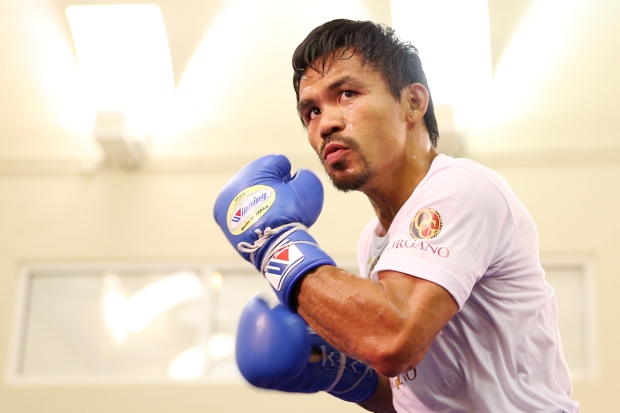So it is quite infuriating to sit back and watch the International Boxing Association (AIBA) lobby for the sport’s top professional athletes to be allowed to square-off with amateurs at the Olympic Games — possibly as early as Rio this summer. They hope it will add more glitz and glamour to Olympic boxing. The premise for the proposal may sound sensible, but it is the wrong way to go about jazzing up the Olympic sport. It could also be incredibly dangerous.
The AIBA is headed by Taiwanese multimillionaire Ching-Kuo Wu. During his reign he has done some great things for amateur boxing. Women’s boxing has been added to the Olympics, along with the much-needed pro-style ten points scoring system. More recently, headguards have been removed in men’s amateur boxing to help reduce concussion. Wu’s next move, though, could be disastrous.
It is farcical to think that experienced professionals such as superstar Manny Pacquiao — who has won world titles in a record eight weight divisions and who has voiced his interest in competing in Rio — should be given the opportunity to compete against young amateurs who have worked their way through various Olympic qualifying stages.
Lennox Lewis, the 1988 Olympic Gold medal winner, has labelled the idea ‘preposterous’ and British heavyweight David Haye rightly called the move ‘insane’. Even Pacquiao’s promoter Bob Arum recently weighed in on the topic, saying: ‘The idea that Manny Pacquiao would face off against some 17 or 18-year-old kid who has no professional experience is not only stupid, it’s dangerous. These people ought to have their heads examined.’
For time eternal the Olympics have been the pinnacle of amateur boxing. There is good reason for this: boxing is one of the few sports — particularly at the Olympics — that has maintained a clear distinction between its amateur and professional codes. Not only do amateur boxers compete over fewer rounds, the codes are so different, in fact, as to present almost entirely different sports.
At the same time, we’re talking about an amateur sport that launched the professional careers of gold medal greats such as Muhammad Ali and Sugar Ray Leonard. The list goes on. For amateur boxers, Olympic success can lead to a lucrative professional contract. Yet even after amateur success, novice professionals routinely start their career by fighting a series of journeymen boxers — in a gradual ascent that requires careful management by a cunning team — in order to give prospects enough time to adapt to the professional style of boxing.
Olympic boxing should be allowed to remain a purely amateur sport and the AIBA should focus on nurturing and protecting young talent. Instead, it appears to plan on throwing them to the dogs. At a time when boxers’ vulnerabilities have been so crudely exposed, you’d hope that the AIBA would see some sense — and revoke its ludicrous proposal.






Comments